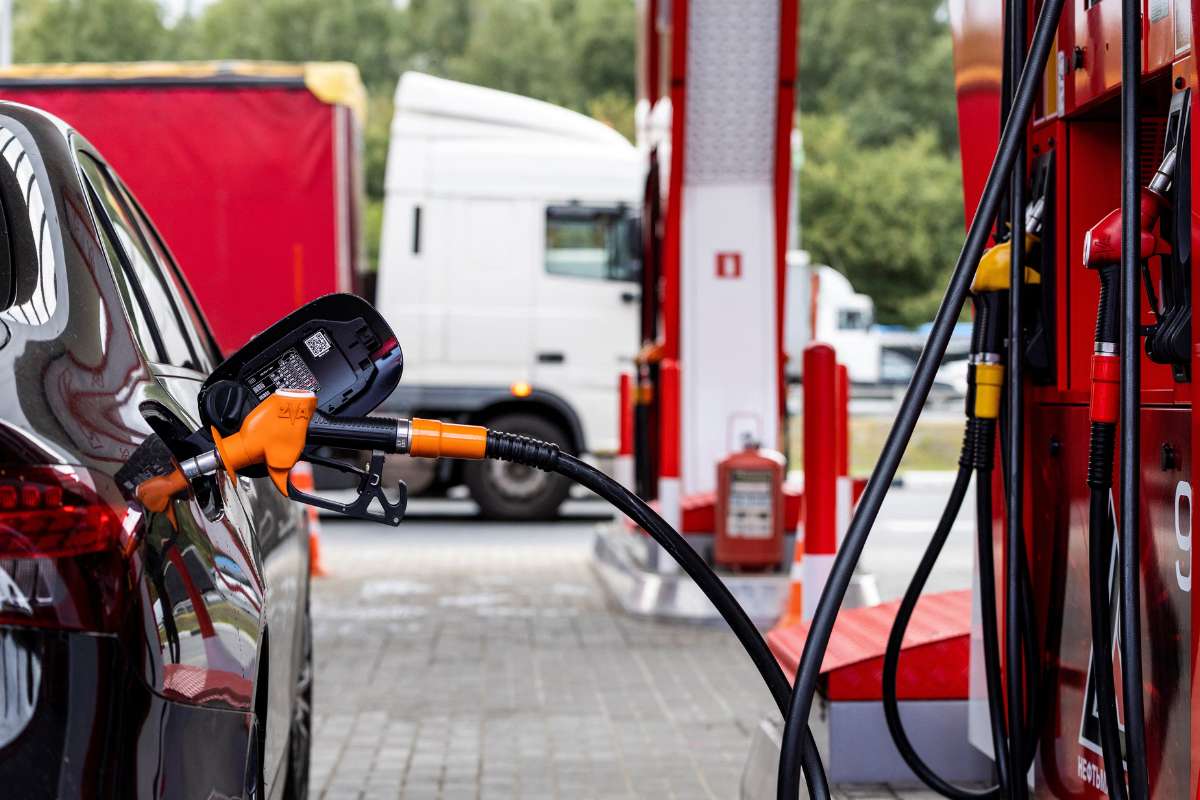MOSCOW — Russia plans to extend its ban on gasoline and diesel export ban through the end of the year and introduce a ban on diesel fuel exports by non-producers, Deputy Prime Minister Alexander Novak said Thursday. The move comes as domestic shortages persist across several regions, including annexed Crimea, and as refinery operations continue to be disrupted by Ukrainian drone attacks.
Wholesale gasoline prices in Russia have surged in recent months, with AI-92 fuel reaching a record 79,788 rubles ($952) per ton on Thursday. Novak said accumulated reserves are covering shortages in some areas but warned that overall supply balances for September and October remain “difficult.”
Domestic fuel challenges
Authorities in Crimea reported that roughly half of the peninsula’s filling stations had run out of fuel. Sergei Aksyonov, the Kremlin-backed head of Crimea, said some refineries are “physically not functioning,” contributing to the scarcity. Deliveries of AI-95 gasoline are expected within two days, while supplies of lower-octane AI-92 should be restored within two weeks, he said.
Fuel shortages stem from damaged and non-operational refineries, reducing Russia’s refining capacity by an estimated 17–20 percent. Restricted refining capacity has forced operational adjustments, prioritizing domestic gasoline and diesel export ban production over exports.
Global supply impact
Russia’s extended ban removes roughly 2.3–2.4 million tons of gasoline and diesel export ban combined from global fuel markets in the fourth quarter of 2025, tightening worldwide supply. Russia is a major global diesel exporter, accounting for over 13 percent of seaborne trade, and its restrictions could create deficits in importing regions.
Countries dependent on Russian fuel, including Turkey, Brazil, parts of Africa, and Europe, may face supply disruptions and price increases ranging from three to ten percent. These countries are expected to seek alternative sources from Middle Eastern, European, and Asian refiners, shifting global trade flows and supply chains.
Price volatility and market adaptation
Reduced Russian fuel exports are contributing to rising fuel prices globally, particularly for diesel in Europe and other regions reliant on Russian-origin diesel. Global suppliers are adjusting, with increased exports from Gulf states and Northeast Asia helping to fill some of the gaps.
Geopolitical and trade implications
The export bans form part of Russia’s strategy to stabilize domestic markets amid ongoing geopolitical conflict. Government interventions such as monitoring wholesale prices, distributing fuel reserves, and controlling exports aim to contain rising prices and prevent sharp retail inflation that could affect transportation, agriculture, and critical industries.
Analysts note that the restrictions complicate global energy security and trade relations, creating dependencies that may influence future energy policies and regulatory frameworks. Reduced export volumes are affecting normal supply chain flows within Russia, leading to acute shortages in regions like Crimea and logistical adjustments across the petroleum sector.
Economic and industry effects
The gasoline and diesel export ban could reduce revenues for oil producers and traders dependent on foreign markets, affecting profitability and investment in the petroleum sector. Elevated wholesale and retail fuel prices may contribute to inflationary pressures, complicating economic policy and industrial costs. The energy sector faces the dual challenge of maintaining domestic supply while navigating geopolitical tensions and infrastructure vulnerabilities.
As Russia continues its export restrictions through year-end, authorities will balance domestic stability with international market dynamics, while the global energy market adapts to tighter supply and shifting trade flows.
Visit Oil Gas Energy Magazine for the most recent information.












